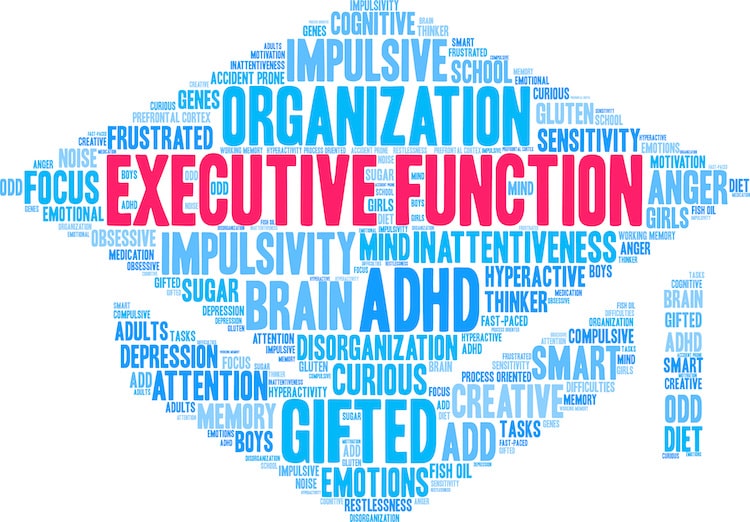Teen Therapy

Welcome to Intown Counseling & Wellness! We’re dedicated to supporting your teenager’s well-being and growth. As your teenager embarks on their journey through the formative teen years, they may encounter a myriad of challenges and emotions that can feel overwhelming. We understand the deep desire of parents to provide unwavering support during this critical phase of their lives, and we are here to stand by you every step of the way. Our team of compassionate and experienced therapists is dedicated to providing a safe and nurturing environment where teenagers can flourish. We firmly believe in the power of personalized care, recognizing that each teenager’s experience is unique and requires tailored approaches. By understanding the individual needs of every teen we work with, we create a space that is free from judgment, fostering an atmosphere where your teenager can express themselves openly and honestly.
At Intown Counseling & Wellness, our commitment to your teenager’s growth extends to empowering them with valuable emotional regulation skills, executive functioning skills, and effective communication techniques. Our dedicated mental health professionals are experienced in guiding teenagers through the complexities of adolescence with grace and resilience.
As a time of profound change and growth, adolescence demands understanding and support. Through evidence-based therapeutic techniques, we assist teenagers in exploring their emotions and building healthy coping mechanisms. Our ultimate goal is to equip them with the tools they need to face life’s challenges confidently, fostering emotional well-being and mental strength. By choosing Intown Counseling & Wellness, you are placing your teenager’s well-being in the hands of licensed and experienced professionals who genuinely care about their growth and development. We are honored to be part of your teenager’s journey and committed to providing the highest quality of care in a warm and welcoming environment. Together, we will support your teenager in navigating the complexities of adolescence and lay the foundation for a bright and fulfilling future.
Common issues addressed:
- Mood
- Anxiety and stress: Learning effective ways to manage stress and anxiety while building resilience to handle life’s pressures.
- Depression: Providing support and guidance to cope with feelings of sadness, hopelessness, and mood swings.
- Academic pressure: Assisting teenagers in managing academic stress and developing effective study habits.
- Executive functioning: Cognitive processes that help individuals plan, organize, initiate, and complete tasks effectively. Crucial for academic success, time management, problem-solving and overall functioning in daily life.
- Relationships
- Peers: Addressing challenges related to peer pressure, bullying, and social interactions.
- Family dynamics: Helping teenagers navigate family issues and improve communication with parents and siblings.
- Self-esteem and body image: Building self-confidence and promoting a positive body image.
- Identity and self-discovery: Exploring personal identity, values, and goals for the future.
- Differentiation: A period of profound change and growth during the teen years.
Reach Out Today!
The differentiation process during the teen years

The teenage years are a period of profound change and growth, often characterized by a process called differentiation. This process is vital for adolescents as they transition from childhood to adulthood, seeking autonomy and a sense of identity. However, this transformation can lead to significant challenges in the parent-teen relationship, as both parties navigate new roles and responsibilities.
Differentiation is a psychological process through which teenagers strive to establish a separate identity and develop individuality. As they move through adolescence, teens begin to form their beliefs, values, and aspirations independently of their parents’ influence. During the differentiation process, teenagers may express themselves through unique clothing choices, hairstyles, hobbies, and friendships. They may challenge authority figures, including parents, as a means of asserting their independence. While this period of differentiation can be challenging for both teens and parents, it is a normal and necessary part of growing up.
While the differentiation process during the teenage years is a natural and essential part of adolescence, it can lead to challenges in the parent-teen relationship. It’s also an opportunity for growth and increased understanding. By fostering open communication, empathy, and respect for each other’s autonomy, parents and teens can navigate this period together, strengthening their bond and supporting healthy development into adulthood.
Factors contributing to parent-teen problems:

- Biological changes: The hormonal shifts and ongoing brain development during the teenage years can lead to emotional turbulence and mood swings, contributing to conflicts with parents.
- Seeking independence: Adolescents strive to establish their identities and yearn for greater independence, which may clash with parental expectations, resulting in disagreements and power struggles.
- Communication breakdown: Teens may struggle to express their emotions effectively, leading to misunderstandings and frustration. Parents, on the other hand, may find it challenging to adapt to their teenagers’ changing communication styles, causing conflicts.
- Peer influence: As peer relationships become more influential during adolescence, teens may prioritize their friends’ opinions over their parents’, leading to conflicts when parents attempt to guide their decisions.
- Expectations and pressure: Parental expectations for academic achievements, career choices, or behaviors may not align with the teenager’s desires, creating tension and stress within the parent-teen relationship.
- Technology and social media: The influence of technology and social media can exacerbate conflicts as teenagers navigate social pressures and online interactions, impacting their self-esteem and behavior.
- Boundary setting: Establishing healthy boundaries is crucial during the differentiation process. Both parents and teenagers may struggle to set and respect appropriate boundaries, leading to misunderstandings and conflict.
- Drug and alcohol use: The experimentation with drugs and alcohol during adolescence can lead to significant conflicts between parents and teenagers, as parents may express concern for their child’s safety and well-being.
Navigating the parent-teen relationship

Parents and teens can take proactive steps to navigate this period with understanding and empathy:
- Open communication: Encourage open and non-judgmental communication. Listen actively to your teen’s thoughts, feelings, and concerns.
- Empathy and understanding: Practice empathy and try to understand the challenges and pressures your teen is facing during this transformative phase.
- Respect autonomy: Allow your teen to make some decisions independently, respecting their growing need for autonomy.
- Set clear boundaries: Establish clear and reasonable boundaries while involving your teen in the process to foster a sense of responsibility.
- Stay informed about technology: Familiarize yourself with the technology and social media platforms your teen uses to better understand their online experiences.
- Seek professional help: If conflicts persist or become overwhelming, consider family therapy or counseling to facilitate better communication and understanding.
Teens in a turbulent and rapidly changing environment

Living in a turbulent and rapidly changing environment has significant consequences for teenagers, including heightened anxiety. The COVID-19 pandemic brought about many challenges that directly impacted them, such as disruptions in education due to online schooling and uncertainties surrounding the virus. Additionally, the prevalence of gun violence in schools adds to the anxiety and fear experienced by teenagers. School shootings and violence have had a profound impact on students, parents, and educators, creating an atmosphere of unease and concern in educational settings. These issues underscore the urgent need for support and understanding to help teenagers navigate the heightened emotional challenges they face during these difficult times.
Impacts of living with uncertainty in a rapidly evolving world include:
- Increased anxiety and depression: The uncertainty stemming from a rapidly evolving world can lead to heightened anxiety and depression among teenagers.
- Sense of vulnerability: The constant exposure to news about unpredictable events can leave teenagers feeling vulnerable and concerned about their safety and the safety of their loved ones.
- Academic and social challenges: Heightened anxiety can affect teenagers’ academic performance and hinder their ability to engage socially, impacting their sense of belonging and connection with peers.
- Coping difficulties: The rapidly changing circumstances may challenge teens’ coping skills, making it harder for them to adapt to new situations and manage stress effectively.
- Fear of the unknown: Uncertainty can evoke fear of the unknown future, leaving teenagers feeling anxious about what lies ahead and their ability to handle potential challenges.
- Media overload: Constant exposure to news and information about current events can overwhelm teenagers, exacerbating their anxiety and making it challenging to find a sense of calm.
- Loss of control: The feeling of not being in control over external circumstances can contribute to feelings of helplessness and anxiety, as teens may struggle to influence the rapidly evolving world around them.
- Sleep disturbances: Heightened anxiety can disrupt teenagers’ sleep patterns, leading to fatigue and affecting their overall mental and physical well-being.
- Impact on self-esteem: Anxiety related to uncertainty can impact teenagers’ self-esteem and self-confidence, as they may doubt their ability to navigate the evolving world successfully.
Supporting your teenager

Join us at Intown Counseling & Wellness and let our therapeutic expertise guide your teenager towards a brighter and more resilient future. Together, we will navigate the challenges of the teen years, unlocking the potential for growth, self-discovery, and lasting emotional well-being. Your teenager’s journey is important to us, and we are here to support them every step of the way.
As your teenager faces the impact of a rapidly evolving world, it is crucial to provide them with a supportive environment and access to resources that promote emotional well-being. Encouraging open communication, fostering resilience, and promoting healthy coping mechanisms can help teenagers navigate these challenges with greater ease. Seeking professional support, such as therapy or counseling, can also be beneficial in helping teenagers process their emotions, develop coping strategies, and build emotional resilience in the face of uncertainty. As parents and caregivers, there are several ways to support teenagers’ during these challenging times:
- Open communication: Encourage open communication with your teenager about their feelings and concerns. Be a compassionate listener and validate their emotions.
- Limit media exposure: While it’s essential to stay informed, help your teenager strike a balance by limiting excessive exposure to news and social media that may heighten their anxiety.
- Create structure: Establish a daily routine to provide stability and predictability during uncertain times. This can help reduce anxiety and provide a sense of normalcy.
- Encourage healthy coping: Promote healthy coping mechanisms, such as exercise, mindfulness, creative activities, and staying connected with friends and family through virtual means.
- Seek professional help: If your teenager’s anxiety becomes overwhelming and starts affecting their daily life, consider seeking help from a mental health professional who specializes in working with adolescents.
- Lead by example: Be a positive role model by managing your stress and anxiety in healthy ways. Show your teenager how to handle challenging situations with resilience and adaptability.
- Celebrate small wins: Acknowledge and celebrate even the smallest achievements and milestones during this time. Recognizing their efforts can boost their self-esteem and motivation.
- Promote physical well-being: Encourage healthy eating habits, regular exercise, and sufficient sleep, as these contribute to overall well-being and can help reduce anxiety.
Executive functioning skills

Intown Counseling & Wellness can provide valuable support for teens in developing and enhancing their executive functioning skills. Executive functioning refers to a set of cognitive processes that help individuals plan, organize, initiate, and complete tasks effectively. These skills are crucial for academic success, time management, problem-solving, and overall functioning in daily life. By addressing executive functioning challenges, Intown Counseling & Wellness helps teenagers build the necessary skills to thrive academically, socially, and emotionally. As teens develop stronger executive functioning abilities, they are better equipped to navigate the demands of school, relationships, and life with increased confidence and competence.
Here’s how Intown Counseling & Wellness can assist:
- Time management and organization: We provide practical strategies and tools to help teens manage their time efficiently, set priorities, and maintain organized study spaces and routines.
- Goal setting and planning: Our therapists at Intown Counseling & Wellness work with teens to set realistic goals and create actionable plans to achieve them. Breaking tasks into smaller steps and setting milestones can make larger objectives more manageable.
- Study skills and strategies: We can offer guidance on effective study techniques, note-taking, and test preparation to enhance academic performance and build confidence in their abilities.
- Emotional regulation: Executive functioning involves emotional regulation, and we support teens in recognizing and managing their emotions to reduce stress and anxiety while promoting focus and concentration.
- Problem-solving skills: Our therapists at Intown Counseling & Wellness teach teens problem-solving techniques to address challenges and obstacles they encounter in various aspects of their lives.
- Self-awareness and self-advocacy: We help teens develop self-awareness, understand their strengths and weaknesses, and learn to advocate for themselves in academic and social settings.
- Support and encouragement: Our therapists at Intown Counseling & Wellness offer continuous support, encouragement, and positive reinforcement as teens work on improving their executive functioning skills.
Emotional regulation skills

Intown Counseling & Wellness is committed to helping teens develop emotional intelligence and coping skills to better understand and manage their emotions, especially during times when emotions are running high. Adolescence can be a tumultuous period, and emotional regulation is essential for overall well-being and mental health.
Here’s how we support teens with emotional regulation skills:
- Emotion identification: Our therapists work with teens to help them recognize and identify their emotions accurately. By understanding their feelings, teens can gain insight into their reactions and develop healthier responses to various situations.
- Emotional expression: We create a safe and non-judgmental space where teens can express their emotions openly. Encouraging emotional expression allows them to release pent-up feelings and reduces the likelihood of emotional suppression or outbursts.
- Emotional regulation techniques: We offer practical tools to help teens regulate their emotions when they experience intense feelings. This includes learning techniques to calm themselves during moments of distress.
- Coping strategies: Intown Counseling & Wellness provides teens with effective coping strategies to manage stress, anxiety, and overwhelming emotions. These strategies may include relaxation techniques, deep breathing exercises, and mindfulness practices.
- Healthy communication skills: Our therapists at Intown Counseling & Wellness teach teens how to communicate their emotions effectively, both with themselves and with others. Improved communication fosters healthier relationships and helps teens express their needs and boundaries.
- Stress management: Intown provides stress management techniques tailored to each teen’s unique needs. Learning to manage stress can significantly impact emotional well-being and overall mental health.
- Self-reflection: Our therapists encourage self-reflection to help teens gain insight into the triggers and underlying causes of their emotions. This self-awareness empowers teens to make healthier choices in response to their feelings.
- Building resilience: By helping teens build emotional resilience, we equip them to bounce back from challenging situations and adapt to adversity with greater ease.
- Addressing underlying issues: If necessary, Intown therapists address any underlying emotional or psychological issues that may be contributing to heightened emotions. Individualized counseling can help teens work through these issues in a supportive environment.
- Supportive environment: Our therapists create a compassionate and supportive environment where teens feel safe discussing their emotions, concerns, and struggles without fear of judgment.
By providing specialized support and guidance, Intown Counseling & Wellness empowers teens to better understand and manage their emotions. These skills not only benefit them during their teen years, but also serve as valuable tools throughout their lives, promoting mental well-being and healthier relationships with themselves and others.
If your teen is resistant to the idea of therapy

If your teen is resistant to the idea of therapy, it can be challenging to know how to proceed. Here are some steps you can take as a parent to help get started even if your teen is initially reluctant:
- Initiate open communication: Find a calm and private moment to talk to your teen about your concerns. Express your love and support and let them know that you are there to listen without judgment. Encourage them to share their feelings and thoughts about therapy.
- Validate their feelings: If your teen expresses reluctance or resistance, validate their emotions and acknowledge that seeking therapy might feel intimidating or uncomfortable. Let them know it’s okay to feel that way, but also explain that therapy can be a valuable tool to help them navigate challenges and improve their well-being.
- Explain the benefits: Talk to your teen about the potential benefits of therapy, such as gaining coping skills, improving communication, and finding support for their concerns. Emphasize that therapy is a safe space to express themselves and explore their feelings.
- Offer choices: Give your teen a sense of control by offering choices. For example, you can let them choose the therapist from a selection of qualified professionals or suggest that they attend an initial session to see if they feel comfortable with the therapist before committing to regular sessions.
- Lead by example: If you have experience with therapy or counseling, share your own positive experiences with your teen. This can help destigmatize the idea of therapy and show that seeking support is a common and beneficial practice.
- Involve them in the decision-making process: Involve your teen in the decision-making process. Ask them what type of therapist they would prefer or what goals they would like to work on in therapy. This involvement can help them feel more invested in the process.
- Address concerns: If your teen has specific concerns or misconceptions about therapy, take the time to address them. Provide accurate information and reassure them that the therapist is there to help, not judge or criticize.
- Seek professional guidance: If your teen remains resistant, consider seeking guidance from a mental health professional or a family therapist. They can provide insights and strategies for engaging your reluctant teenager in the therapy process.
- Start slowly: If your teen is still hesitant, consider starting with a few trial sessions or a single session to see how they feel afterward. Often, after experiencing the therapeutic process, teens may become more open to continuing.
- Respect their decision: While it’s essential to encourage your teen to try therapy, respect their decision if they are not yet ready. Continue to be supportive and open to discussing the possibility of therapy in the future.
Remember, building trust and maintaining open communication with your teenager are key. It’s essential to be patient and understanding throughout the process, allowing them to take ownership of their mental health journey at their own pace.
Ready to start therapy?
As a parent, you play a significant role in supporting your teenager’s emotional well-being. Our therapists at Intown Counseling & Wellness are here to collaborate with you and your teen, providing a safe space for growth, healing, and understanding. Through therapy, we aim to empower teenagers to navigate their challenges with resilience and build strong foundations for their future.
We process appointment inquiries Monday – Friday between 10 a.m. – 6 p.m. One of our staff members will do a brief telephone intake with you and match you with one of our therapists. Our staff consists of a diverse team of highly-trained and specialized clinicians, each possessing a wide range of expertise and experience. We strive to schedule you with the best and most appropriate mental health professional, based on the concerns, as well as any preferences you may have. If there is a particular therapist you would like to work with, please mention his or her name when you contact us. Feel free to read our staff bios if you would like a better understanding of the different areas of interest and expertise that our clinical staff offers.
Day or evening appointments are available Monday – Friday, and some of our clinicians provide services on Saturdays.
